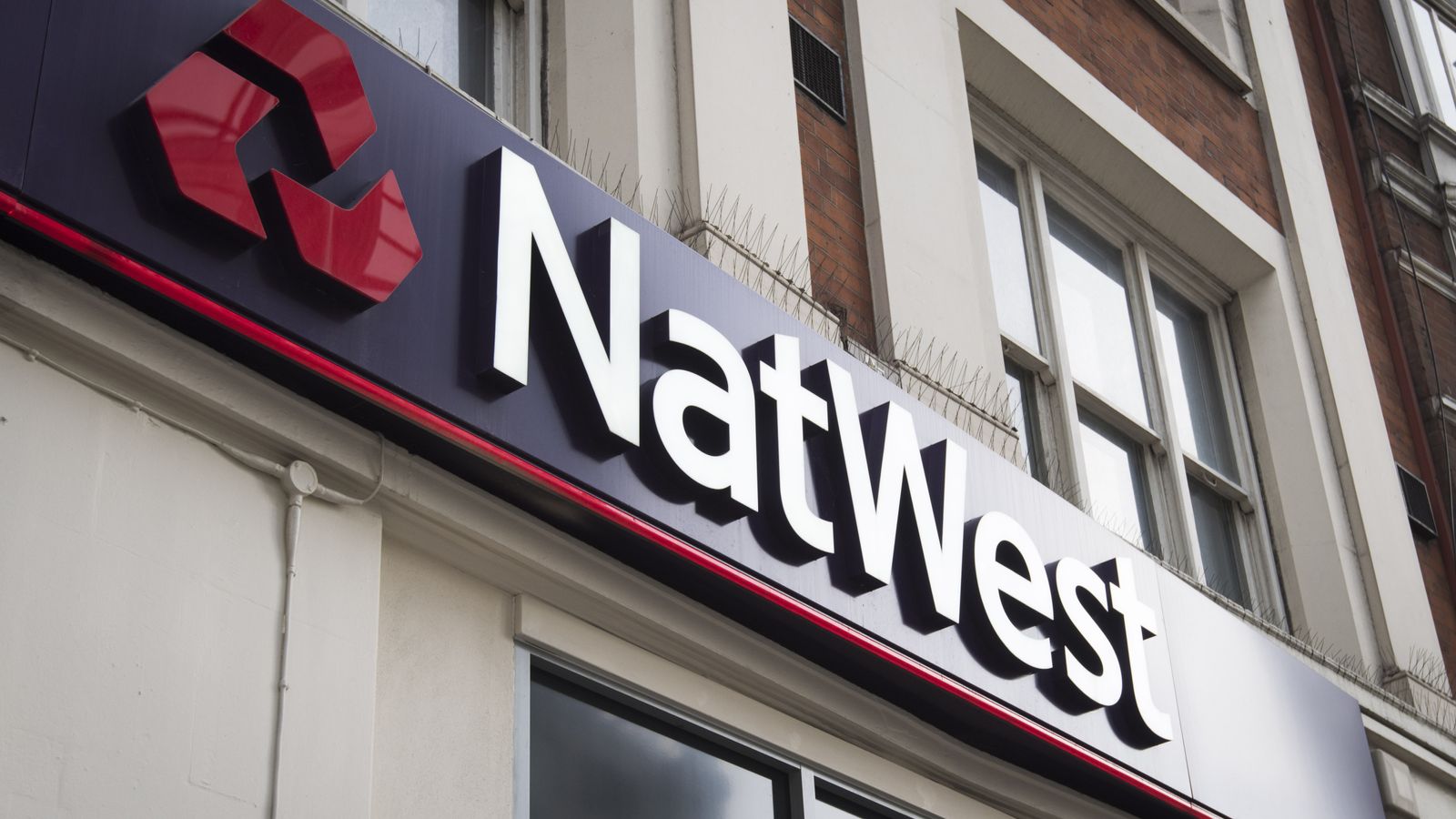Ministers apply finishing touches to ‘Tell Sid’-style NatWest offer

Ordinary investors will be awarded ‘bonus’ shares in NatWest Group if they hold onto stock they acquire in the taxpayer-backed bank, under a plan expected to be finalised by ministers later this month.
Sky News has learnt key details of the options being explored by the Treasury for a multibillion pound retail offer of NatWest shares, including a likely £10,000 cap on applications from members of the public.
Jeremy Hunt, the chancellor, announced in last year’s autumn statement that he would explore a mass-market share sale “to create a new generation of retail investors”.
Since that point, further buybacks by the bank and stock sales by the government have reduced the taxpayer’s stake to around 28% – worth about £7bn at NatWest’s current valuation.
The retail offer will be launched alongside an institutional placing of shares in the bank which could in aggregate lead to the Treasury’s stake falling to as low as 10%, sources indicated this weekend.
If investor demand turns out to be greater than expected, the reduction could be even more substantial, they said.
That would put the government within striking distance of returning NatWest to full private ownership 16 years after the lender was rescued from the brink of collapse with £45.5bn of public money.
This weekend, sources said that options under active consideration by Treasury officials included a minimum investment of £250, to encourage a wide participation in the retail offer.
A ceiling of £10,000 was “likely”, they said, mirroring a 2015 Treasury plan – which was subsequently abandoned – for a retail offering by the Treasury of Lloyds Banking Group shares.
Advertisement
The NatWest offer is also expected to award one bonus share for every ten bought by retail investors and retained for at least a year, the sources added, although they cautioned that final details such as the bonus share ratio and precise investment thresholds could still be amended by officials.
A modest discount to the bank’s prevailing share price will also be applied to encourage take-up.
People close to the decision-making process said that Mr Hunt and Rishi Sunak, the prime minister, were being kept closely informed on the plans.
Read more:
Entain approaches former Coral and Sky Bet chiefs in hunt for next boss
Goldman Sachs scraps bonus cap for top London-based staff
Depending upon market conditions, they said an announcement to launch the offer could come in late May or early June.
The green light will be subject to any political turbulence in the aftermath of this week’s local elections, they added.
Shares in NatWest have risen by more than 20% over the last year despite the turbulence surrounding the debanking row involving Nigel Farage, the former UKIP leader.
Dame Alison Rose, the bank’s former boss, stepped down last year after it emerged that she had spoken to a BBC journalist about the closure of Mr Farage’s accounts.
She has since been replaced by Paul Thwaite, whose transition from interim to permanent boss of NatWest was confirmed earlier this year.
NatWest also has a new chairman, Rick Haythornthwaite, who replaced Sir Howard Davies at its annual meeting last month.
Mr Farage, who has threatened to launch legal action against the bank, recently declared his fight with the lender “far from over”.
“For a retail NatWest share sale to work – as outlined by Jeremy Hunt in the Budget – investors must have confidence in the bank,” he said.
“My debanking row with them is far from over.
“They acted in a politically prejudiced way against me and then deliberately tried to cover it up.
“Until they provide full disclosure and apologise for their behaviour, why should any retail customer trust them?”
The government’s stake in NatWest has been steadily reduced during the last eight years from almost 85%.
Sky News revealed earlier this year that ministers had drafted in M&C Saatchi – the advertising agency founded by the brothers who helped propel Margaret Thatcher to power – to orchestrate a campaign to persuade millions of Britons to buy NatWest shares.
NatWest, which changed its name from Royal Bank of Scotland Group in an attempt to distance itself from its hubristic overexpansion, was rescued from outright collapse by an emergency bailout that Fred Goodwin, its then boss, likened to “a drive-by shooting”.
A spokesperson for NatWest said “decisions on the timing and mechanic of any offer are a matter for the Treasury”.